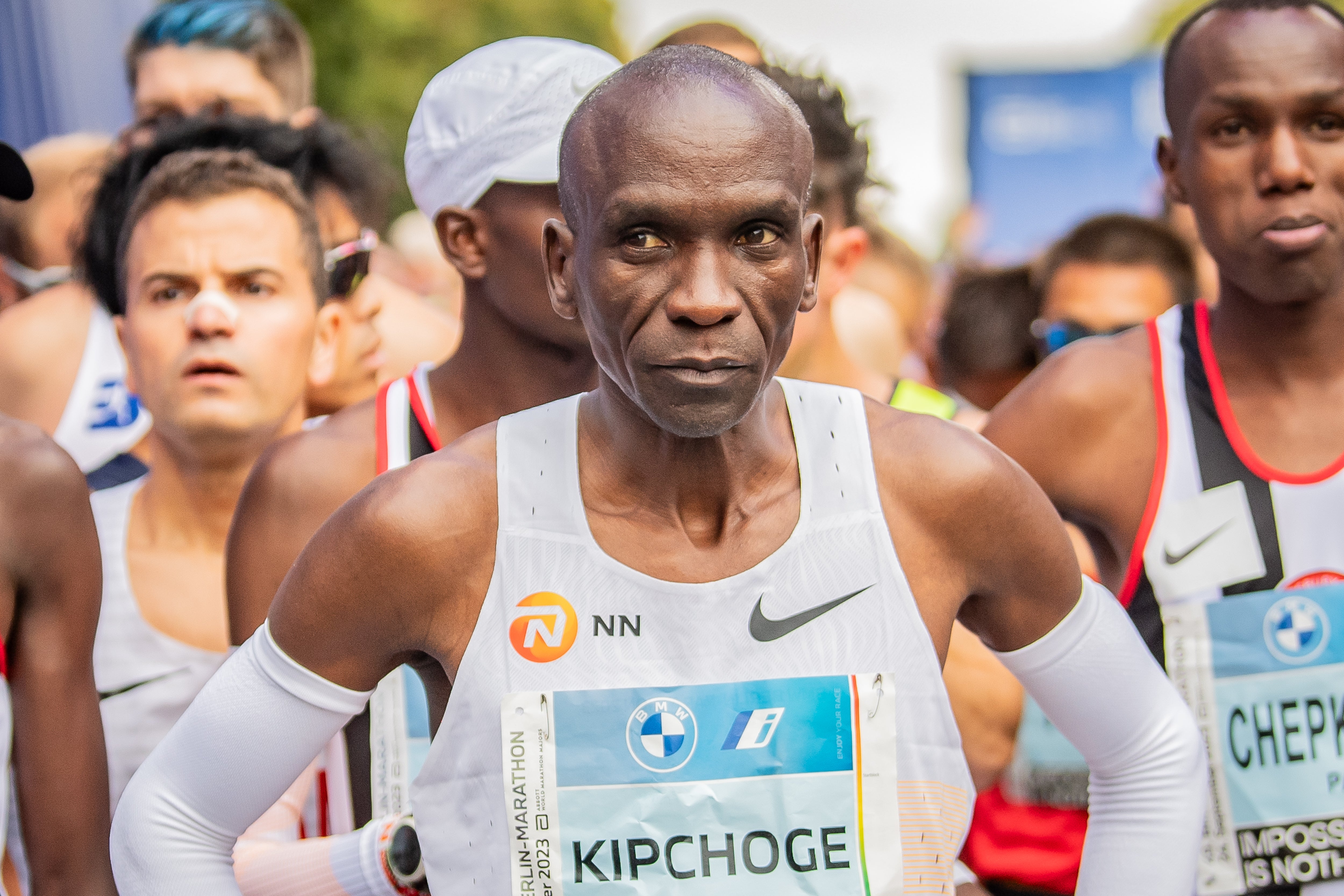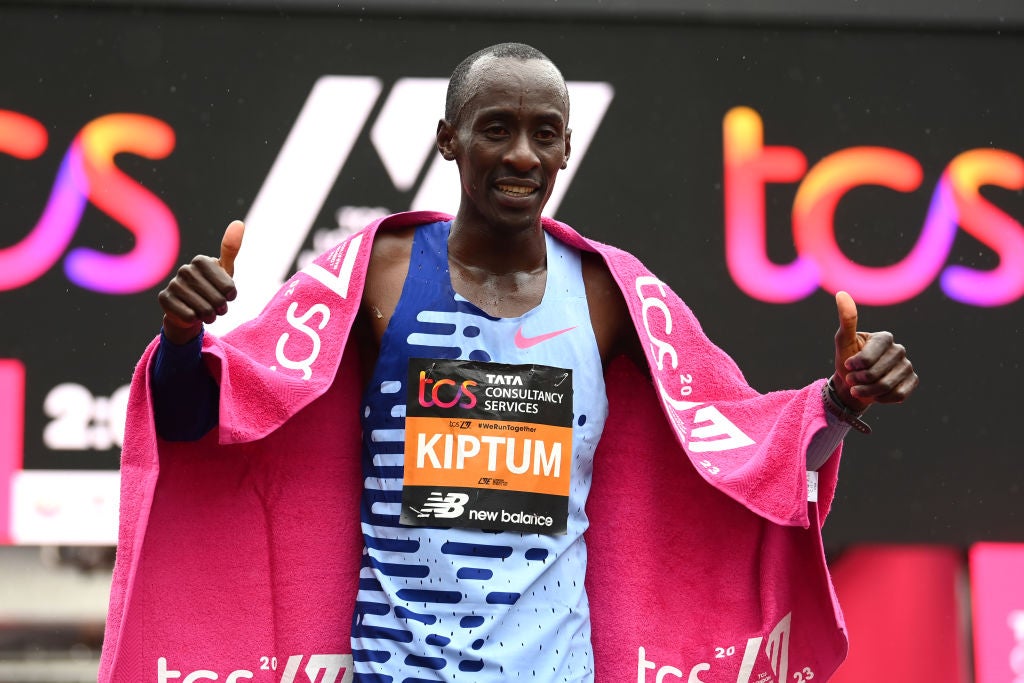Eliud Kipchoge condemns online abuse wrongly linking him to death of Kelvin Kiptum
Kiptum died in a car crash alongside his coach at the age of just 24

Your support helps us to tell the story
From reproductive rights to climate change to Big Tech, The Independent is on the ground when the story is developing. Whether it's investigating the financials of Elon Musk's pro-Trump PAC or producing our latest documentary, 'The A Word', which shines a light on the American women fighting for reproductive rights, we know how important it is to parse out the facts from the messaging.
At such a critical moment in US history, we need reporters on the ground. Your donation allows us to keep sending journalists to speak to both sides of the story.
The Independent is trusted by Americans across the entire political spectrum. And unlike many other quality news outlets, we choose not to lock Americans out of our reporting and analysis with paywalls. We believe quality journalism should be available to everyone, paid for by those who can afford it.
Your support makes all the difference.Eliud Kipchoge has revealed he feared for the lives of his family following a campaign of online abuse and conspiracy theories wrongly linking the two-time Olympic champion and marathon great to the tragic death of rising star Kelvin Kiptum.
Kiptum was killed in a car crash in February at the age of just 24, only months after the Kenyan broke compatriot Kipchoge’s world record in Chicago. Kiptum looked set to lower further records and challenge Kipchoge’s dominance over the sport.
Kipchoge, 39, led the tributes after Kiptum’s death, mourning the loss of an athlete who had a “whole life ahead of him to achieve incredible greatness”. Kiptum’s coach, Rwanda’s Gervais Hakizimana, was also killed when Kiptum lost control of their car and crashed into a tree.
Kipchoge said online trolls threatened to burn down his house after he was linked with Kiptum’s death on social media, revealing he also lost “90 per cent” of his friends as a result of the malicious rumours which spread as far as his elderly mother.
“I was shocked that people on social media platforms are saying ‘Eliud is involved in the death of this boy’,” Kipchoge told BBC Sport Africa. “That was my worst news ever in my life.
“I received a lot of bad things; that they will burn the (training) camp, they will burn my investments in town, they will burn my house, they will burn my family. It did not happen but that is how the world is.”

Kipchoge said he was worried for the safety of his children and revealed the impact the rumours had on his mother.
“I don’t have power to go to police and tell them my life is in danger. So my concern was actually to tell my family to be extra conscious and cautious,” he said. “I started to call a lot of people.
“I got really scared of my children going to school and coming back. Sometimes they bike around, but we had to stop them because you never know what will happen. We started to drop them [off] and pick them [up] in the evening.
“My girl was in boarding school - that was positive that she had no access as far as social media is concerned - but it’s tough for my boys to hear ‘Your dad has killed somebody’.

“It was really painful for me to learn even from my own people, those who I have contact with, and the bad words are coming from them. I was really down to see that.”
Kipchoge said he did not sleep for three days before the Tokyo Marathon in March as a result of the threats. He finished 10th in the race, his worst position since making his marathon debut in 2013.
The Kenyan great, who will be attempting to become the first person to win three consecutive Olympic golds in Paris this summer, said social media companies were “not doing much” to stop the abuse.
“These faceless people are posting bad things and are really dangerous,” Kipchoge said. “If you report some accounts then it takes time for them to delete those accounts.
“They should act fast, get the facts, delete accounts. People [should] know that if you say something which is not good then your account will be deleted.”
Join our commenting forum
Join thought-provoking conversations, follow other Independent readers and see their replies
Comments